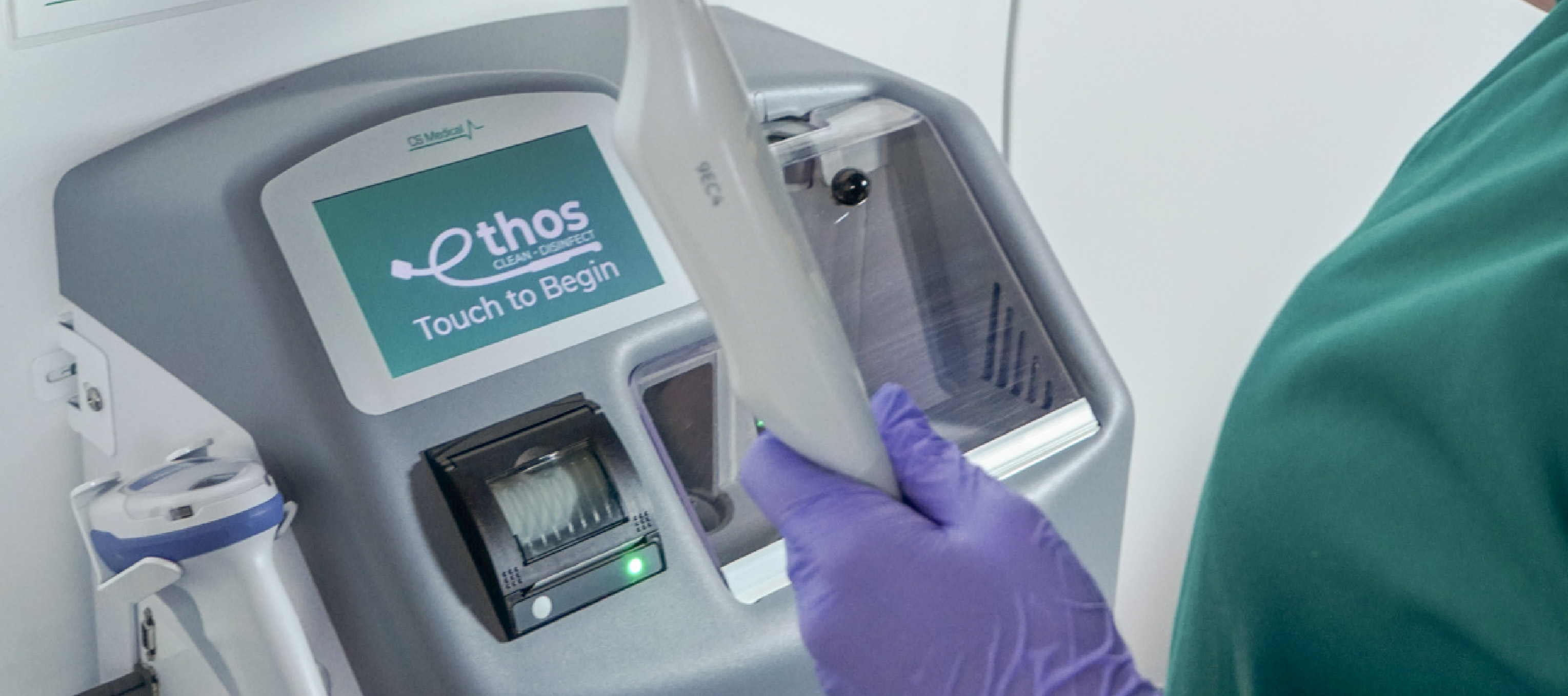In the realm of healthcare, maintaining a stringent level of cleanliness and hygiene is paramount to ensuring patient safety. Medical facilities heavily rely on high-level disinfectants to disinfect semi-critical medical devices, like transvaginal, transrectal, and surface ultrasound probes, thereby preventing the spread of infectious agents. To ensure that these disinfectants are effective, minimum recommended concentration (MRC) testing is performed at every disinfection. This testing verifies that disinfectants maintain their appropriate concentration, ultimately ensuring patient safety and the overall efficacy of the high-level disinfectants.
Challenges of Manual MRC Testing
MRC testing is not without its challenges, especially when performed manually as it has been for most high-level disinfection procedures. Automating these kinds of testing procedures is a significant advantage to medical facilities.
Manual MRC testing relies on human observation and interpretation, making it vulnerable to subjectivity and human error. These tests typically involve the use of MRC test strips, which are dipped into the disinfectant solution and then compared to a color chart to determine concentration. Human perception of color can vary from person to person, and ambient lighting conditions can further affect the accuracy of a person’s interpretation of the results. This subjectivity introduces a significant margin for error, as the technician's perception of color may not always align with the actual concentration of the disinfectant.
To make matters worse, manual MRC testing is a time-consuming process. It requires trained personnel to prepare the solutions, conduct the tests, and document the results. The need for meticulous attention to detail further prolongs the testing process. In a busy medical facility, time is one of the most valuable resources, and the need for frequent MRC testing can lead to inefficiencies in workflow. Skilled technicians are required to perform these tests, diverting their attention from other critical tasks, such as patient care. This not only increases operational costs but also leaves room for human fatigue and the associated risk of errors.
Benefits of Automating MRC Testing
While manual testing can be problematic on so many fronts, automated MRC testing simplifies and eliminates room for error. Automation presents facilities with several significant benefits over outdated manual methods.
By automating MRC testing, the element of subjectivity and human error can be eliminated. Automated systems can precisely analyze the color changes that occurs, ensuring consistent and accurate results each and every time. This precision is essential because even slight deviations in disinfectant concentration can compromise patient safety.
Automation is also beneficial to medical facilities by reducing the time required for testing. Automated MRC testing requires almost no human action or oversight. This means that staff members involved in reprocessing procedures for transvaginal, transrectal, and surface ultrasound probes can make better use of their time than by dipping strips into solutions and waiting for colors to appear. This accelerated testing process ensures that disinfectants are verified quickly and accurately, allowing medical facilities to maintain much more efficient workflows.
While initial investments in automation technology may seem significant, the long-term benefits far outweigh the costs. By reducing labor requirements and minimizing potential errors, automation ultimately leads to cost savings for medical facilities. Fewer errors mean fewer wasted resources and decreased chances of improperly reprocessing ultrasound probes.
Another huge benefit to automated systems is that they record and store data with precision which is essential for accountability and maintaining regulatory compliance. This not only provides a comprehensive record of MRC testing but also facilitates traceability. The healthcare industry is subject to stringent regulations and standards to ensure patient safety. Automated MRC testing helps medical facilities adhere to these standards with a higher level of confidence. Reliable and consistent testing results help in meeting regulatory compliance, thereby reducing the risk of sanctions or legal complications.
At the end of the day, ensuring that disinfectants maintain their appropriate concentration is essential for patient safety. Automation minimizes the risk of human errors that could compromise this safety. By adopting automated solutions, medical facilities can enhance their infection control protocols, reducing the likelihood of healthcare-associated infections and safeguarding the health of the people who need it most.
Automating chemical efficacy testing, such as MRC testing for high-level disinfectants, is undoubtedly a boon for medical facilities. The difficulties associated with manual MRC testing, including subjectivity, human error, time consumption, and labor intensiveness, make automation a compelling alternative. By removing human factors and introducing precision, speed, and efficiency, automated systems offer a range of benefits.
Facilities considering the benefits of automating MRC testing can look to CS Medical to provide this cutting-edge technology. Ethos® Automated Ultrasound Probe Cleaner Disinfector is the first device of its kind to not only automate the cleaning and high-level disinfection of soiled transvaginal, transrectal, and surface ultrasound probes but also to automate the MRC testing process.
The advantages of automation extend beyond error reduction and efficiency. They include cost savings, improved data recording and traceability, compliance with regulatory standards, and enhanced patient safety. In a healthcare landscape where maintaining cleanliness and hygiene is critical, these benefits are instrumental in upholding the highest standards of care and ensuring the well-being of patients. Therefore, medical facilities should consider the adoption of automated MRC testing as an investment in both their operational efficiency and the safety of their patients.


